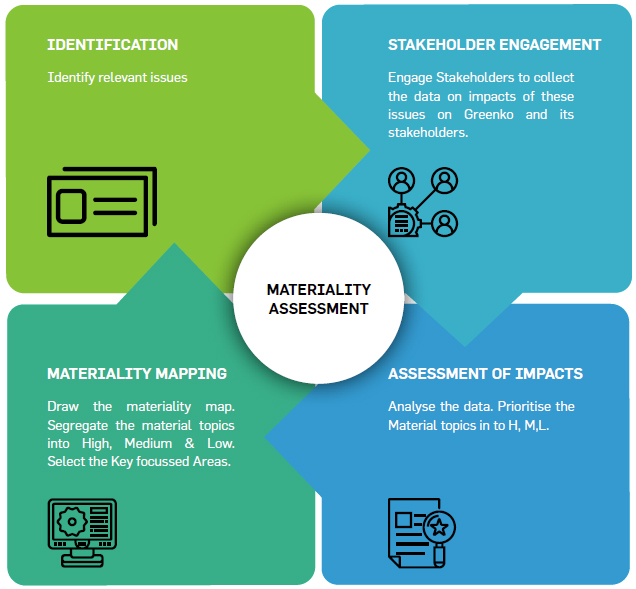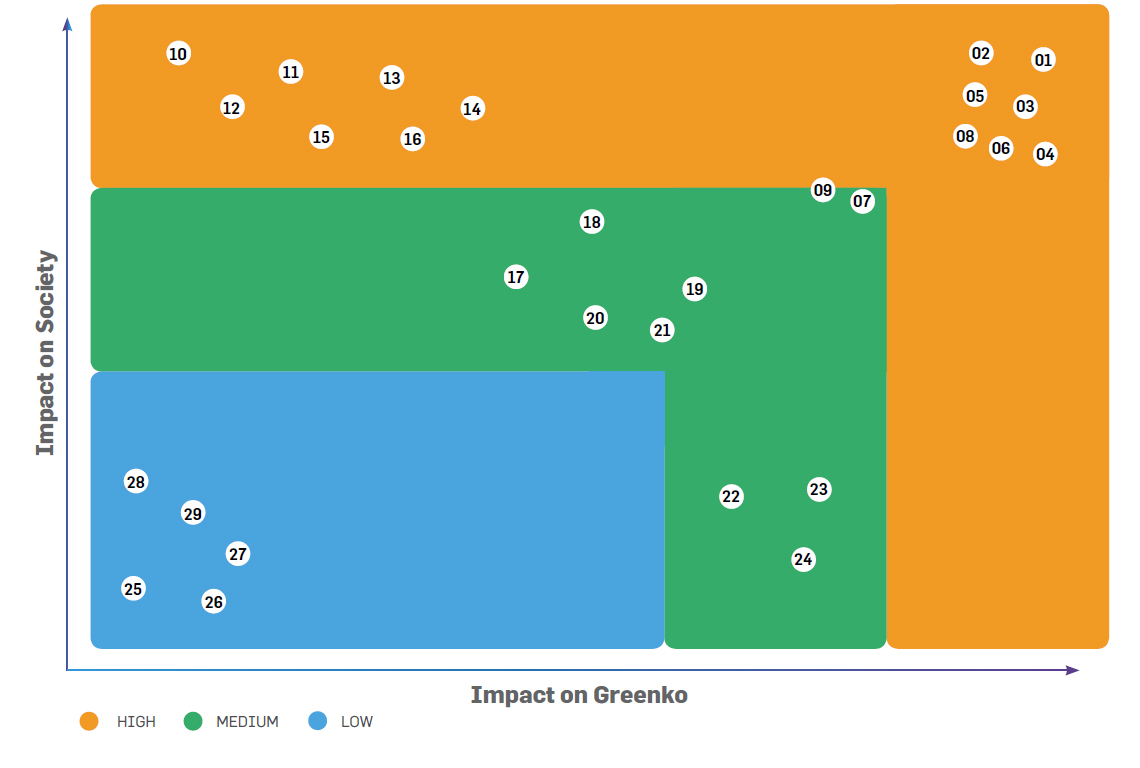It intends to address the key impacts (positive and negative) across its value chain and the same are reported. Stakeholder engagement provides Greenko an opportunity to obtain an insight into the stakeholder perspective and share Company's sustainability strategies with them. This exercise not only helps the Company to establish a transparent and positive relationship with the stakeholders but also understand and assess their concerns and approaches. This enables the identification of the key material topics that Greenko needs to address to sustain value creation.
Greenko considers an issue to be material if it influences or likely to influence its ability to create value in the short, medium, and long term. Greenko conducted materiality assessment through extensive internal and external stakeholder engagement and identified issues and aspects of significance. Such material issues have been identified, segregated, and ranked as High, Medium, and Low by considering the kind of impact it has on the organization and its stakeholders. Greenko’s position, approach and performance on these material issues are detailed in this report.


1. Economic Performance
2. Energy storage value pools
3. Excellence, Adoption and Management of Assets and Projects
4. Health & Safety
5. Community Development Initiatives
6. Innovation and Technology adoption
7. Public Policy Advocacy
8. Climate Proofing
9. Regenerative and Circular Value Pursuit
10. Stakeholder Engagement
11. Regulatory Compliances
12. Risk Management
13. Diversity
14. Waste Management
15. Talent Acquisition and retention
16. Skill Enhancement
17. Employee welfare
18. Employee Engagement
19. Transparency
20. Anti-corruption
21. Sustainable Supply Chain Management
22. Human rights
23. Life Cycle Management
24. Biodiversity
25. Energy Management
26. Succession Planning
27. Grievance Mechanism
28. Land management
29. Sustainable partnerships